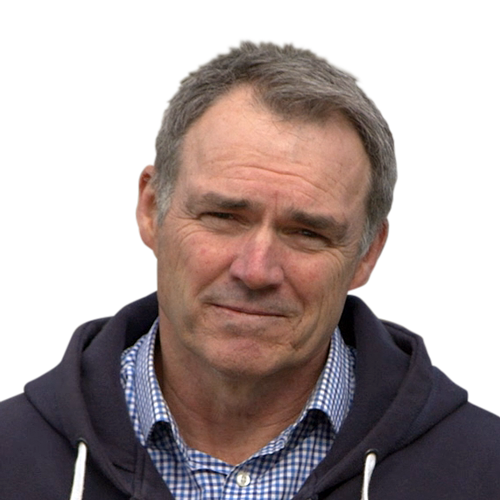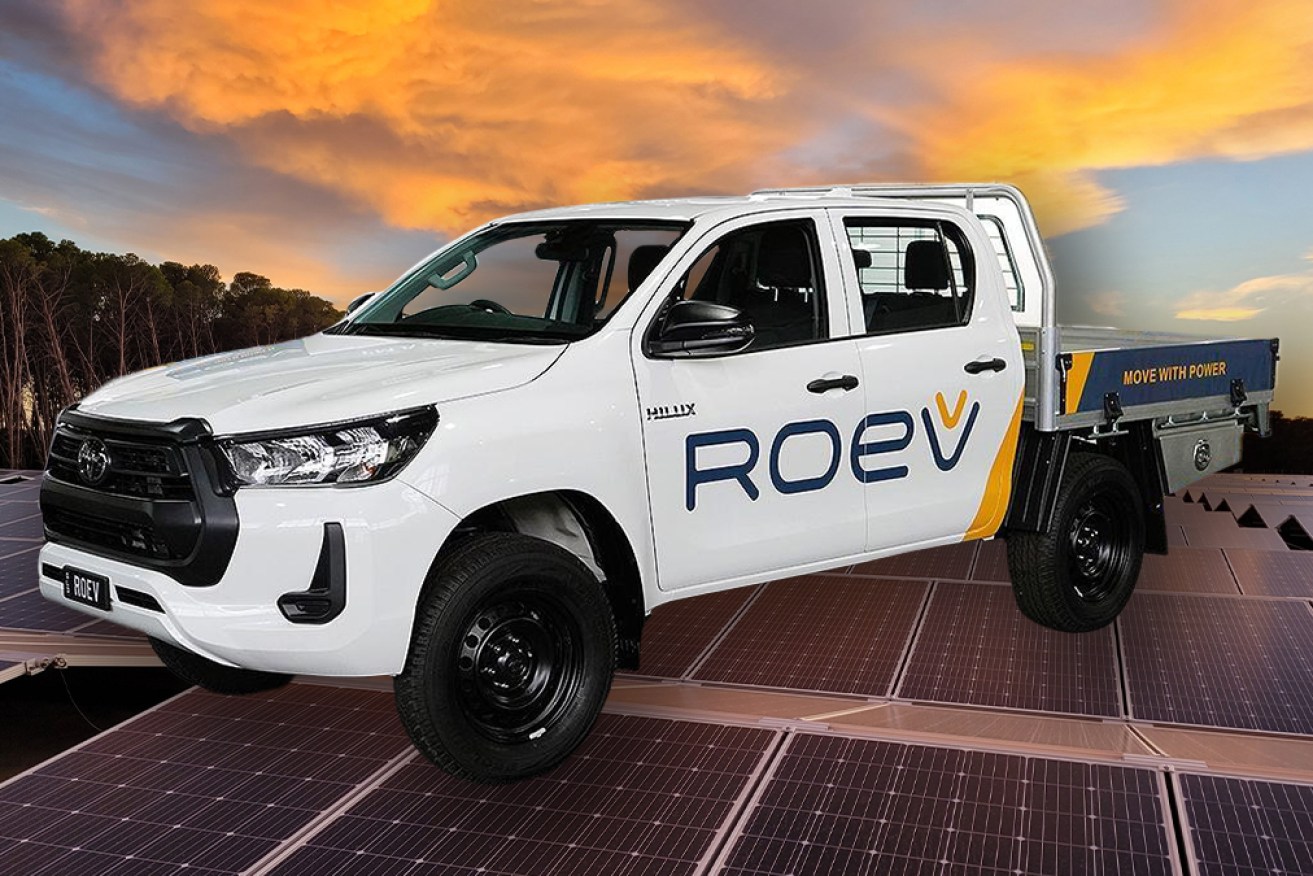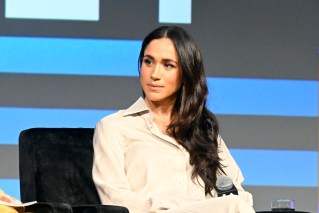Fleets of Toyota utes set to go electric thanks to small Queensland startup


From next year, Toyota HiLux utes will be transformed to electric by a Queensland firm. Photo: ROEV/TND
Greenpeace has slammed Toyota for not transitioning fast enough to electric vehicles, but a small Australian startup is filling that gap.
Queensland-based Roev, or Renewable Optimised Electric Vehicles, plans to start converting the top-selling Toyota HiLux diesel ute to electricity in 2023, and says it has fleet buyers queuing up.
Within years it wants to design and produce an EV ute of its own in micro-factories located in different states of Australia.
What sets Roev apart from other automotive startups that were just as ambitious but failed to progress is enough private funding to get through the development stages and a group of powerful friends.
Roev CEO and co-founder Noah Wasmer spent four years as head of technical teams at Atlassian, the software giant established by Australian eco-billionaire and green investor Mike Cannon-Brookes who is a primary driver of the transition to renewables in Australia.
“We’ve brought together a team that has deep under-pinnings in auto, software and energy,” said Mr Wasmer. “We are reasonably well capitalised … I think we have a good shot.”
Roev is starting when the political trends are more favourable, he said. The new Labor federal government is developing plans for a vehicle emissions reduction strategy that will encourage the take-up of EVs, and is also promising to co-invest billions of dollars in a reboot of local manufacturing.
The first step in the Roev plan is to start production by April 2023 of HiLux and Ford Ranger utes with their diesel engines replaced by zero emissions electric motors. The goal is to build 1000 in the first 12 months. The utes will be sold to fleet buyers only – so no private owners need apply.
The diesel HiLux is the top selling vehicle in Australia, and Ranger is second. Other popular utes such as the Mitsubishi Triton may be offered down the track.
“There’s an enormous amount of HiLuxes out there in fleets, many more than we could handle in our first year,” said Mr Wasmer.
“Equally, there is a lot of excitement around Ranger and there are a lot of those in fleets right now and a lot of interest in conversion.”
Encouraging response
More than 30 fleets have expressed interest in the project so far, he said. That response will help secure the debt financing needed to progress to production.
“It is very helpful for fleets to sign up and express their interest and get increasingly committed,” he said.
Roev is dealing only with fleets because a single customer potentially represents hundreds of vehicle conversions. The Roev ute will be more expensive than diesel equivalents, but fleets would be able to justify that because electric vehicles can have lower running costs.
“They [fleets] are very sophisticated when it comes to the total cost of ownership, they understand the maintenance costs, they understand their fuel costs, they understand their down time, they understand the complete picture,” he said.
Roev is also counting on corporate responsibility motivating EV fleet purchases as companies adopt sustainability goals.
A key selling point will be the ability of Roev utes to produce electricity. They will be able to power items like tools and laptops, and generate income for owners by feeding electricity back into the grid.
“The opportunity is really the melding of the idea of energy and transport coming together and to really orchestrate energy in smart vehicles you need smart software,” he said.
“That is going to be a prerequisite to really look at these power-walls on wheels and do smart things with them; to charge them smartly and make them participate in the grid in a stable and resilient fashion.”
The plan is for private buyers to be offered the chance to buy Roev utes in the future. The company also wants to expand its line-up to include SUVs.
Tailpipe tyranny
Two recent reports provide evidence Roev’s ambitions have merit. In one, the National Transport Commission highlighted how Australia’s addiction to utes and SUVs – which now account for about 70 per cent of all new vehicle sales – was holding back the push to reduce tailpipe emissions.
In the other, global environmental campaigner Greenpeace ranked Toyota last among major car manufacturers globally based on environmental credentials.
Toyota dominates Australian new cars sales, with more than 20 per cent of the market. It is expected to launch its first battery electric vehicle, a compact SUV, in Australia next year. It is unlikely to offer an electric ute in Australia until close to 2030.
While Toyota lags, other brands such as EV evangelist Tesla, Ford and Chevrolet all have models on the way. China’s LDV launches the first EV ute in Australia in November.
“We saw a massive gap,” said Mr Wasmer.
“The ute is a great Australian vehicle, but it could also be part of the solution to the energy challenges we are going to face over the coming decades.”








